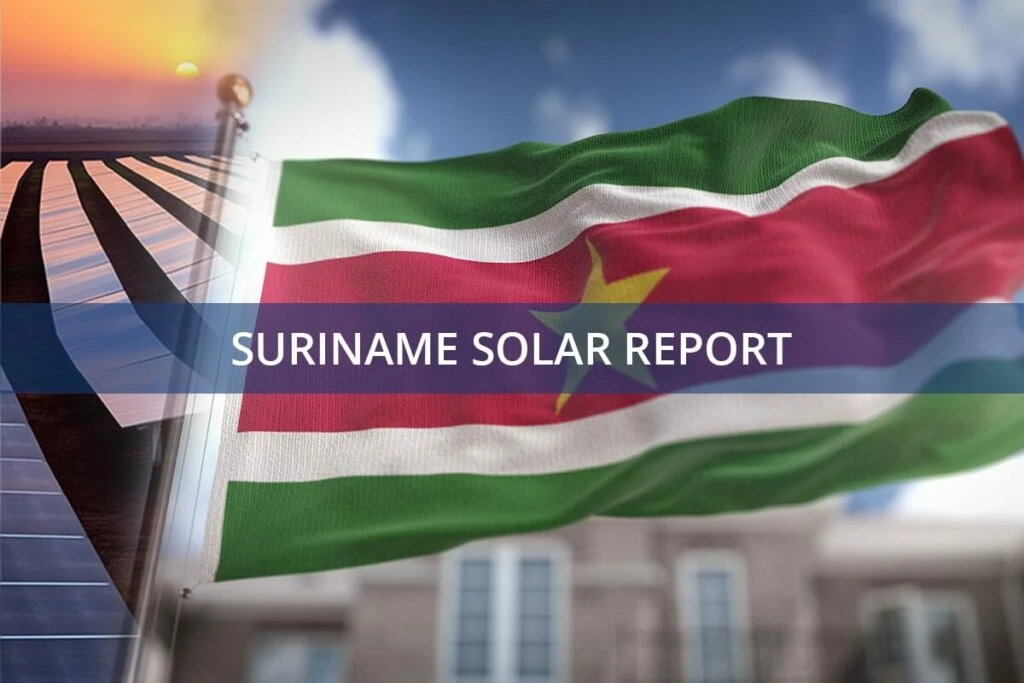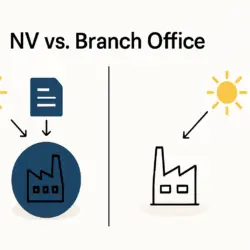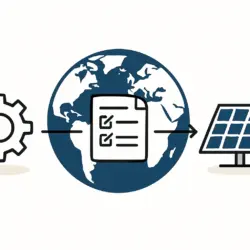Suriname’s Solar Project: Reducing Diesel Dependence with Suriname solar power
Suriname has taken a significant step towards a sustainable energy future by launching a landmark solar PV system in the Boven Suriname region. This initiative is a cornerstone of the country’s strategy to reduce its dependence on diesel, cut greenhouse gas emissions, and promote clean energy solutions. As a nation rich in natural resources, this pivot towards renewables is a critical move, reflecting a broader trend in Suriname solar news.
The 5 MW solar PV microgrid was installed in the Boven Suriname area, providing consistent power to 12 remote villages and the Brownsweg area. Inaugurated in early October, the system is engineered to dramatically decrease the region’s reliance on diesel generators. A key component of the project is a powerful 14 MWh energy storage system, which stores excess solar energy to ensure a stable, 24-hour power supply even when the sun isn’t shining.
According to a press release from the United Nations Development Programme (UNDP), the installation is projected to cut greenhouse gas emissions by an impressive 2,200 tons and reduce diesel imports by 1 million liters annually. This translates into a significant economic benefit, saving Suriname approximately $1 million each year.
Partners in the Solar Project and Suriname solar power
This ambitious project was brought to life through a robust collaboration between local and international partners. On the ground, the Suriname Energy Company (EBS) and the Ministry of Natural Resources were instrumental. The project received crucial support from the UNDP and the Japan-Caribbean Climate Change Partnership (J-CCCP).
The installation is part of a wider national strategy, including the Suriname Renewable Energy Access Project (SREAP), which aims to extend electricity to remote communities. The country has been actively exploring various renewable energy sources, including solar, wind, and hydropower, to lessen its carbon footprint and its dependence on volatile fossil fuel markets.
Sustainable energy projects like this one are vital for Suriname, a nation that has historically relied heavily on imported fossil fuels. By investing in renewable energy, Suriname is not only mitigating its environmental impact but also building resilience against global energy price fluctuations.
Suriname’s Renewable Energy Potential with Suriname solar power
Suriname possesses significant potential for renewable energy development. Its location near the equator provides abundant sunlight throughout the year, making it an ideal location for solar energy projects. For those interested in the technology, understanding the basics of solar panel manufacturing can provide insight into how this resource is harnessed. Beyond solar, the country also has untapped potential for wind energy, particularly in its coastal areas.
In recent years, Suriname has made substantial progress in its green transition. The government has established ambitious targets to increase the share of renewables in the national energy mix. The 5 MW solar PV system in the Boven Suriname region is a prime example, but it is one of several renewable energy projects underway. Other large-scale initiatives, like the planned 30 MWp solar park project, signal a strong commitment to a cleaner energy future.
Future Prospects for Renewable Energy in Suriname solar power
The success of the Boven Suriname solar project is expected to catalyze further investment in the nation’s renewable energy sector. The country has already captured the attention of international investors and development partners who recognize Suriname as a promising market. A detailed look at the local industry can be found in the Suriname solar panel manufacturing report.
The government of Suriname is committed to fostering a supportive environment for this growth. Policies have been implemented to encourage renewable energy projects, including tax incentives and streamlined permitting processes, which are crucial for developing a complete domestic solar panel manufacturing process in the long term.
The solar PV system in the Boven Suriname region marks a significant milestone in the nation’s journey towards energy independence and environmental stewardship. By decisively reducing its reliance on diesel and cutting greenhouse gas emissions, Suriname is taking bold steps to protect its unique environment and foster sustainable economic growth. To learn more about the fundamentals of this technology, consider exploring our free e-course on solar energy.



